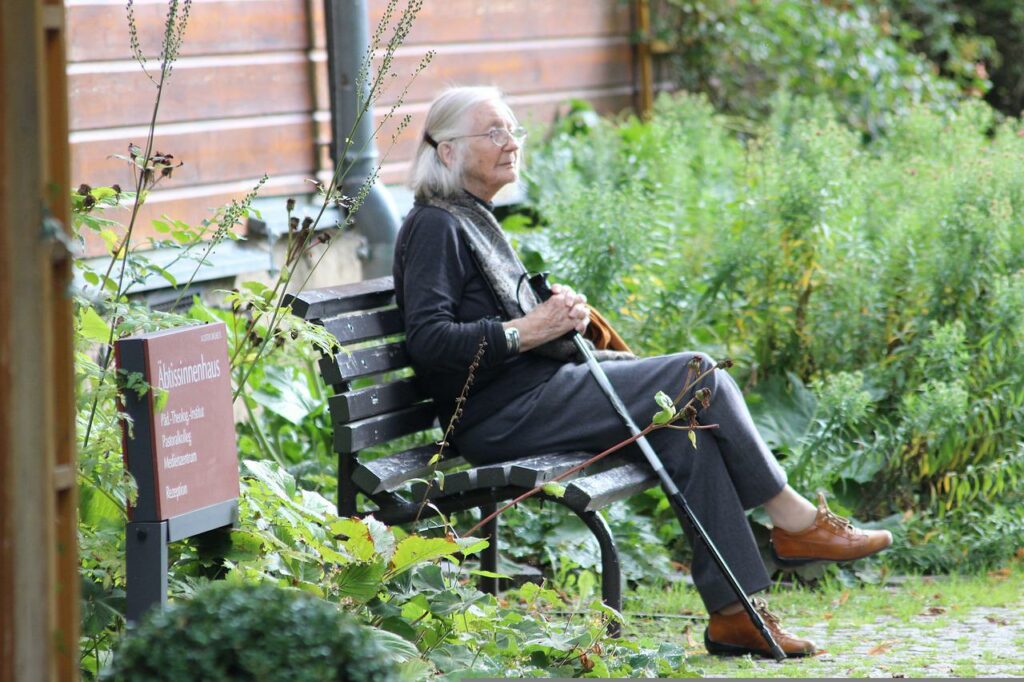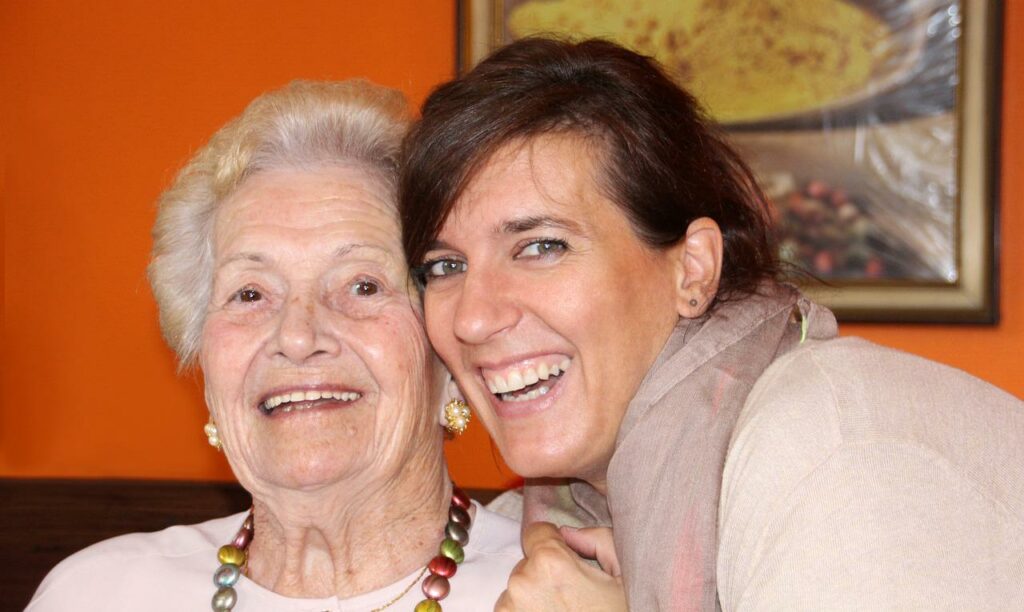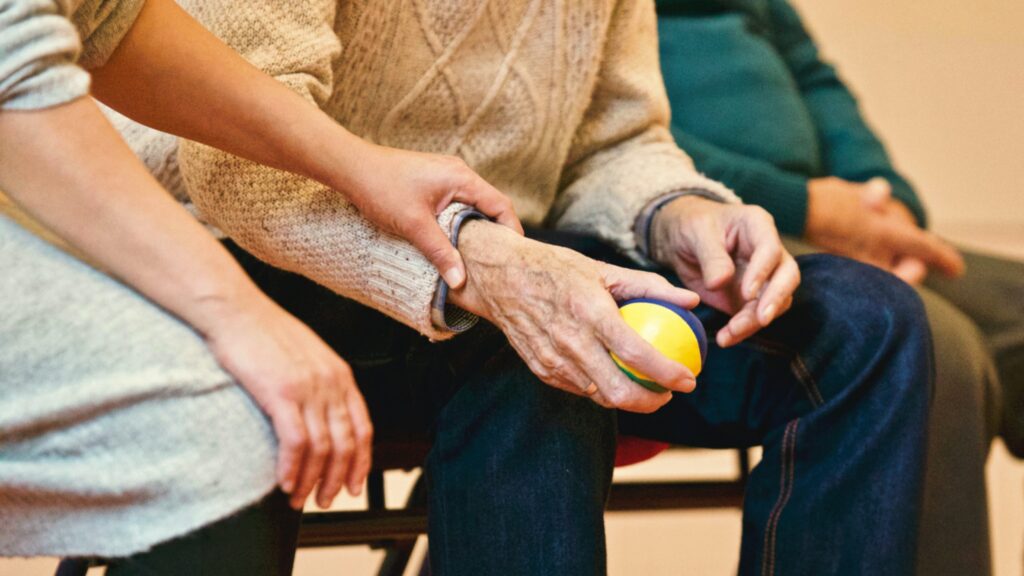When caring for a loved one with signs of dementia or Alzheimer’s disease, it could be challenging. Yet there are many resources that can help caregivers get through these challenging times and find the support they need to make a difference. For those suffering with dementia, there are different stages of the disease. Caregivers need a team of people to help them through each stage of the aging process, whether if you are just starting to see the signs or it is more prevalent in your loved ones lives. To get started, let’s first discuss the types of stages there are for Alzheimer’s disease and other dementia conditions.
Early Stage of Dementia

For most seniors or older adults in the early stages of this disease, their functioning levels are most common to other individuals without living with dementia. They may still be working, able to drive, and participate in social activities. Some forgetfulness may be apparent, but there is no red flags going off just yet. As a caregiver or an adult child of those in this stage, it is important to provide the support they need and seek out some companion opportunities to help them throughout the day. Encouraging them to get a pet, such as a dog, can help seniors in the early stage of dementia cope better every day. Some people in this first stage may stay in it for several years. For caregivers, it is sometimes difficult to determine how much care to give or how much assistance may be needed. Also, it can sometimes be complicated to plan or schedule Dr. appointments, shopping/grocery days, or providing help with their weekly budget.
Moderate/ Mid-stage of Dementia

For many older adults, the middle stages of Alzheimer’s or dementia can last the longest, sometimes many years or even a couple decades. Getting help or support as a caregiver is necessary to provide the right care to your aging parent or loved one. During this stage, the brain may not be functioning at its optimal level as it once was. Damage to the brain cells make it hard to focus, concentrate, and express thoughts. Some seniors may find it difficult to do routine tasks or perform their normal duties. Alzheimer patients may also jubble their words or say incoherent sayings or phrases. As far as physical challenges, some seniors may need help getting in and out of the bath tub, help with dressing, and may need to use a walker or cane for assistance. Mental health changes also affect the mind and brain. Some older adults at the mid-stage of dementia may become frustrated or angry, and may lash out at the caregiver or refuse to bathe when they need to. Although these changes are hard to watch, there are many resources available to those suffering through this, both the caregiver and the senior with dementia.

Common Middle-stage concerns
Changes in behavior: There are many changes that occur during this stage that affect both the caregiver and the person with alzheimers. Some people experience mental health changes, such as anxiety, depression, and irritability. Seniors may also experience repetitive behaviors or physical and verbal outburst, due to not comprehending what is going on around them. Changes in sleep patterns and occasional wandering are also common behavior changes. Their memory is also declining more than just months earlier.
Daily care assistance: Another area that needs to be addressed is daily care needs of the alzheimers or dementia patient. Many people that suffer through the mid-stages of alzheimer’s have difficulties with eating, dressing, and grooming on a daily basis. What once was done independently, is now a challenge to most seniors who are experiencing the mid-stages of dementia. As a caregiver, it is sometimes hard to see our loved ones in this stage of confusion. However, it is important to be patient, show empathy, and be sensitive to those who are close to you. The caregiver will need to assist in completing daily tasks and encourage the elderly person to do as much as they can. Caregivers may also need to direct or re-direct the senior several times, until the task is completed. Preparation is the key. Laying out a list of things to do or putting clothes on the bed ahead of time can help the person with dementia still feel independent.
Communication: For people that have been diagnosed with dementia or Alzheimer’s disease, communicating to others is often a huge challenge. Finding the words to speak or expressing themselves no longer comes natural. It is more difficult to comprehend others or follow simple instructions. They may repeat words over and over. Some seniors may also start speaking a language that they originally spoke as a child or rely on only non-verbal communication. Caregivers should speak slowly and with a soft tone. Becoming angry or frustrated will make things worse. It is also recommended to stay in contact with the family doctor. Some dementia medications may cause speech impediments. Being aware of side affects of medications is also recommended.
Driving: In the mid-stage of dementia, seniors will have to stop driving. It is not only for their safety, but for other drivers on the road. Caregivers should sit down with the dementia patient or loved one and share your concerns for safety. They should provide examples of things that could go wrong if they continue to drive. Provide good alternatives, like rideshares, taking a bus, or having a close friend or family member to be their designated driver for now on.
Meaningful Activities: Seniors going through this stage needs to be encouraged to still do what they can, even when it’s difficult. Providing activities that enhance their quality of life is a great start. Keeping seniors with dementia entertained may also help them from reacting negatively to new caregivers that may come into the home. Try not to change up their schedule too often. Having dementia patients focus on one task at a time is also important for every day living. Make it simple, like preparing a meal together, help with gardening in the front yard, or just taking a stroll around the neighborhood.
Last/Late Stages of Dementia

Now on to the last stage of dementia. This stage may be the hardest for families to go through, as the disease can progress slowly at times. It can take several years; however, sometimes it can just be a few weeks. Around the clock care is common since most dementia patients can no longer do much for themselves by this point. Caregivers should be connected to all the resources they need. There are some changes that caregivers should be aware of. Most dementia or Alzheimer’s patients will have difficulty in eating and swallowing. They may need assistance in walking or may not be able to walk at all. They may also be prone to infections or develop open wounds more often. Some may lose the ability to talk or communicate at all. As a caregiver, your main job now is to preserve the quality of life and provide dignity to the loved one going through these changes.
Tips for Caregivers
Safety always comes first: Caregivers should always encourage seniors to do as much as they can, but be there for them and provide supervision when necessary. Making sure certain items are put away or out of reach is essential, such as sharp knives, medications, and harmful cleaning products.
Have open communication and create a help signal: One of the best ways to have open communication is to ask about any problems or concerns directly to the dementia patient. Have a game plan when frustration looks or starts to develop. Sometimes it’s hard to see if the dementia patient is having problems with communication. Identifying a specific phrase or cue to know when the person is struggling and needs help. For example, asking them to if they need help with something when they look puzzled or having a key word to know when they can’t remember a person’s name is also helpful.

Avoid stress: Caregivers need to also manage the stress levels of the loved ones that are taking care of, especially when the senior has dementia. Making sure the their every day tasks/routine are not causing too much stress on the person with dementia. For example, some seniors can get frustrated when going grocery shopping. Caregivers should allow the seniors to participate, but provide them with small tasks, such as asking them to write down what foods they would like to eat for the week.
Encourage and build up: This can go hand in hand with avoiding stress, but at a higher importance. Caregivers should encourage their loved ones with dementia to complete tasks. When you sense any frustration, just calmly intervene without raising your voice. Stay focused and concentrate on current needs of the day, since each day will be different from the next.
Work together: As a caregiver for someone with dementia or Alzheimer’s disease, finding fun activities that both of you can do together is important to their health and wellbeing. Whether it is playing cards with the grandkids, planting a garden in the backyard, or just pulling out a board game, people with dementia should continue to stay both physically and mentally active. Being supportive during the mid to last stages of dementia is crucial, especially that their level of assistance is growing.
Related:
10 Ways to Prevent Alzheimer’s
Foods to Boost Your Memory and Brain